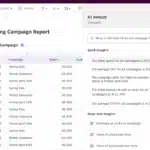Complex environments mean enterprises can't use a third of their data effectively

New research from hybrid data company Cloudera reveals that organizations currently estimate they are not using 33 percent of their data effectively.
The survey 850 IT decision makers (ITDMs) across the EMEA region shows 72 percent of respondents agree that having data sitting across different cloud and on-premises environments makes it complex to extract value from all the data in their organization.
How object storage can contribute to cybersecurity analytics [Q&A]

Data volumes are growing exponentially year after year, this means huge amounts of log data that security teams are struggling to collect, analyze and act on in a timely manner.
As a result, security teams are inundated with data that is fragmented across locations and platforms. We spoke to CTO of MinIO Ugur Tigli to discuss how modern object storage can be used to build automated cybersecurity analytics pipelines to break down these barriers and enable security teams to quickly take action on the information stored in log files.
Rows gives you your own personal spreadsheet analyst

Earlier in the year, German spreadsheet company Rows launched its latest product with ChatGPT capabilities built in.
Its now introducing a new feature in the form of AI Analyst which summarizes the main takeaways from any dataset, runs in-depth analysis, and answers any questions you might have about your data.
Data quality incidents take two days or more to resolve

The latest State of Data Quality survey from Bigeye finds that more than half of respondents have experienced five or more data issues over the last three months.
Another 40 percent say they have experienced moderate to severe data incidents within the last six months, and that it took a major effort to avoid damage to the business. These incidents range from severe enough to impact the company's bottom line, to reducing engineer productivity.
New platform aims to deliver consumer insights without compromising privacy

The online world means that there is more information available about individuals than ever before. At the same time, however, there's growing concern around tracking and privacy.
A new SaaS platform launched this week by Qudo uses 'zero-party' data shared by consumers in anonymous online surveys, rather than rely on first- and third-party data collected via cookies.
What do we want? Data! What shall we do with it? Ermmm...

A new global survey of nearly 10,000 business leaders shows 80 percent say data is crucial to decision making in their organization.
However, the study from Salesforce also shows that a third lack the ability to generate insights from data, only 29 percent are using data to inform their strategy when launching in new markets, and 67 percent are not using data to decide on pricing in line with economic conditions, such as inflation.
Marketing data science -- what is it and where is it headed? [Q&A]

Data science involves analyzing and interpreting large, complex amounts of data and turning it into valuable insight to achieve business goals. Though not exactly a breakthrough field now, it has changed many aspects of how markets conduct business.
In a conversation with Jerry Johnson, founder and president of Marketing Data Science Associates and director of Cascade Strategies, we talk about data science, its applications in marketing, and its future with the emergence of AI.
Enterprise management undervalues the power of search in digital transformation efforts

A new study from Coveo shows 81 percent of IT and business stakeholders agree that it's hard to engage management when talking about search.
The study of 600 people carried out by Dimensional Research shows 83 percent of respondents say that enterprise search is crucial to digital transformation efforts, but that company leadership rarely talks about it.
Why data science is failing marketers

Companies can now gather more information about their customers than ever before. But according to a new study data science is not benefiting marketers, with 84 percent of marketing executives saying their ability to predict customer behavior is guesswork.
The report from predictive analytics company Pecan AI, based on surveys carried out by Wakefield Research, finds four out of five marketing execs report difficulty in making data-driven decisions despite all of the consumer data at their disposal.
Why enterprises need to treat data as a first class citizen [Q&A]

Data has become increasingly important for modern businesses and they increasingly expect it to help them improve their delivery to customers and ultimately their bottom line.
We spoke to Dom Couldwell, head of field engineering, EMEA at DataStax to discuss how companies can use data and how they need to adapt their approach to do so effectively.
Enterprises are storing more data than ever

According to a new study more than 50 percent of enterprises are managing 5PB or more of data, compared with less than 40 percent that were doing so in the same survey last year.
The 2022 Unstructured Data Management Report from Komprise also shows most are now spending more than 30 percent of their IT budget on storage and backups.
Data maturity drives increased revenues

Data-mature enterprises see a three times improvement in revenue along with shorter time to market, greater profit, improved operational efficiency and great customer loyalty, according to a new report.
The study from IDC and sponsored by analytics specialist Heap shows that how well a company uses data and employs it in its decision making can provide up to a 2.5 times average increase in business outcomes across the board.
Data-driven tools prove key to business growth

Data and analytics are instrumental to helping organizations successfully solve problems and 84 percent of organizations have either already deployed or have data-driven projects on their roadmaps.
A new study from Foundry shows data-driven projects continue to accelerate as 34 percent of organizations state that they have already deployed or implemented them compared to 28 percent of organizations saying the same in 2021.
New AI platform helps financial enterprises handle unstructured data

Unstructured data might include everything from documents to social media posts, all enterprises have it but being able to make use of it is a challenge.
AI startup nRoad is launching its new Convus platform, aimed at financial services businesses enabling them to extract critical business information buried in unstructured documents.
The future of business analytics will look similar to your favorite app

Imagine a world where more than 300 million people use analytics to make data-driven decisions every day, decisions that require digging through databases, combining multiple sources of data, and even the most advanced analytics techniques. Don’t believe it? This world already exists. Most of us just don’t know it.
Spotify currently has 381 million users listening to music and podcasts. Netflix just reported that it has 221 million subscribers streaming movies and shows across the globe. It’s estimated that 100 million people use an Apple Watch, and many more millions use other wearable fitness devices as well. The list goes on. These companies help millions of people discover new artists, find a show to watch, and even live healthier lives. Their users are everyday consumers, not business analysts or data scientists, and yet they’re somehow making decisions using insights based on the largest and most complex of data sources. If you want to see the future of analytics in business, look to the leading consumer apps.
Recent Headlines
Most Commented Stories
BetaNews, your source for breaking tech news, reviews, and in-depth reporting since 1998.
© 1998-2025 BetaNews, Inc. All Rights Reserved. About Us - Privacy Policy - Cookie Policy - Sitemap.